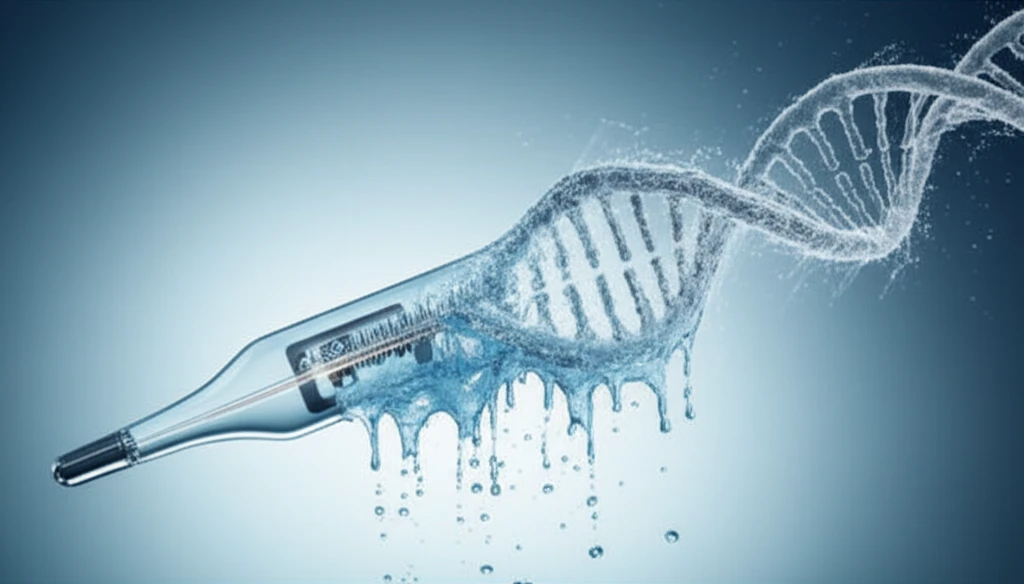
Unlocking the Secrets of Complement Biomarker Stability: How Sample Storage Impacts Your Health Data
"A Deep Dive into the Effects of Temperature on C3a and C4a Levels and What It Means for Accurate Testing."
In the realm of medical diagnostics, accuracy is paramount. Every step, from sample collection to analysis, must be carefully controlled to ensure reliable results. One often-overlooked aspect is the impact of sample storage conditions on the stability of biomarkers—those telltale molecules that provide insights into our health. Recent research has shed light on the critical role that temperature plays in preserving the integrity of complement biomarkers, specifically C3a and C4a.
C3a and C4a are fragments produced during the activation of the complement system, a crucial part of the immune system that enhances (complements) the ability of antibodies and phagocytic cells to clear microbes and damaged cells, promote inflammation, and attack the pathogen's cell membrane. Changes in their levels can indicate various health conditions, making them valuable markers for diagnosis and monitoring. However, these biomarkers are susceptible to degradation if not stored properly, leading to inaccurate test results and potentially misguided clinical decisions.
This article delves into a groundbreaking study that investigated the effects of storing samples at different temperatures—specifically, -80°C versus -20°C—on the levels of C3a and C4a. By understanding the findings of this research, we can gain valuable insights into the best practices for sample storage and ensure the accuracy of complement biomarker testing, ultimately safeguarding the reliability of our health data.
Why Does Temperature Matter for Biomarker Stability?

Temperature is a critical factor in maintaining the stability of biological molecules, including proteins and peptides like C3a and C4a. Enzymes, which are biological catalysts, can remain active even at low temperatures, albeit at a slower rate. These enzymes can degrade the biomarkers of interest, leading to inaccurate measurements.
- Enzymatic Degradation: Higher temperatures accelerate enzymatic activity, causing faster degradation of C3a and C4a.
- Preservation at -80°C: Storing samples at -80°C minimizes enzymatic activity, maintaining biomarker integrity.
- Inaccurate Measurements: Improper storage can lead to skewed test results due to biomarker degradation.
The Bottom Line: Prioritize Proper Sample Storage for Reliable Results
In conclusion, the stability of complement biomarkers, particularly C3a and C4a, is significantly affected by sample storage temperature. Storing samples at -20°C can lead to biomarker degradation and inaccurate test results, while storing samples at -80°C helps to preserve their integrity. These findings highlight the importance of prioritizing proper sample storage practices in clinical laboratories and research settings. By adhering to recommended guidelines, we can ensure the accuracy of complement biomarker testing and improve the reliability of our health data, leading to better-informed clinical decisions and improved patient outcomes.
